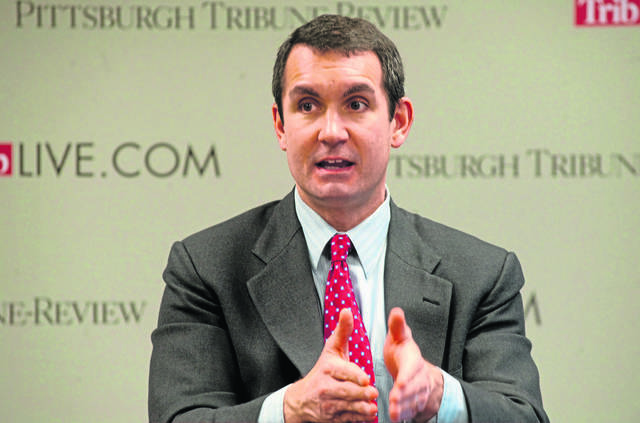Pennsylvania Auditor General Eugene DePasquale released a performance audit Thursday critical of Pittsburgh Public Schools, saying the district shortchanged taxpayers by not seeking nearly $2 million in fuel-tax reimbursements and by failing to pursue competitive transportation bids.
In a telephone conference with reporters, DePasquale described the district’s poor record-keeping as irresponsible.
School officials took issue with the findings, saying the fuel-tax reimbursement had been identified and corrected before the audit. And the sheer number of transportation vendors — the district uses 18 — makes casting a wide net to get competitive bids impractical.
“I disagree that we could get competitive bids and get a better cost,” said Pamela Capretta, chief operations officer for Pittsburgh Public Schools, noting the district just renegotiated rates that hold costs to an average 3% increase.
State law does not require school districts to seek competitive bids. But most do, DePasquale said.
“They’re not violating the law,” DePasquale said. “They’re violating what I think is best practice.”
The school district cannot recoup the $1.99 million in fuel-tax rebates it did not pursue for five consecutive years. But DePasquale’s audit did note that the district had done so for 2017 and 2018, collecting more than $700,000 in reimbursements.
The vast majority of the 499 school districts in Pennsylvania track transportation vendors’ fuel consumption for reimbursement purposes. Only five or six school districts don’t, DePasquale said.
“Most every other district finds a way to get this done,” he said.
Public schools are exempt from Pennsylvania’s motor fuel tax, which is among the highest in the nation. On diesel fuel the reimbursement is 74.1 cents a gallon and 57.6 cents for gasoline.
Over the audit period, the district paid more than $119 million to transport roughly 21,000 students, the second highest enrollment in the state.
Auditors also found the district relied on rates created so long ago that officials no longer recalled the basis for the fees.
An advocate for rebidding transportation contracts upon renewal, DePasquale found that 19 school districts in 2016 had spent $54.8 million more than the state formula allowance largely because of renewing without new bids.
Among the audit’s findings:
• The board rubberstamps approval for the same vendor every four to five years.
• Transportation rates were not linked to the number of students or distance traveled and providers were paid at least two hours a day per vehicle, regardless of having multiple buses running routes that took less time.
• Despite public school code requirements, the district did not keep supporting documentation for $32 million it received in state transportation funds.
Lacking all the transportation records, DePasquale said his team was unable to determine whether the district appropriately received these transportation funds from the Pennsylvania Department of Education.
Capretta, the school district COO, said she doesn’t believe state law requires them to keep the documentation DePasquale questioned. From now on, she said, the school administration will maintain the documentation.
Eric Levis, a Pennsylvania Department of Education spokesman, did not immediately respond to requests for comment.
In addition to the performance audit released Thursday, DePasquale is also conducting a review of district officials’ travel to Cuba over spring break earlier this year. That audit is expected before year’s end.
Capretta said she had not yet seen a draft.
The district’s last performance audit was in 2015. Thursday’s transportation audit, which covered the period from July 1, 2014, through June 20, 2018, was a continuation of the one conducted four years ago, DePasquale said,
To read the full report, click here.








